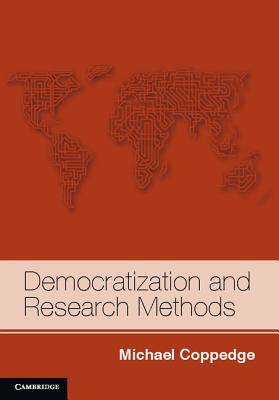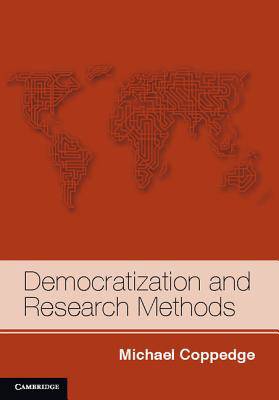
Je cadeautjes zeker op tijd in huis hebben voor de feestdagen? Kom langs in onze winkels en vind het perfecte geschenk!
- Afhalen na 1 uur in een winkel met voorraad
- Gratis thuislevering in België vanaf € 30
- Ruim aanbod met 7 miljoen producten
Je cadeautjes zeker op tijd in huis hebben voor de feestdagen? Kom langs in onze winkels en vind het perfecte geschenk!
- Afhalen na 1 uur in een winkel met voorraad
- Gratis thuislevering in België vanaf € 30
- Ruim aanbod met 7 miljoen producten
Zoeken
€ 72,45
+ 144 punten
Omschrijving
Democratization and Research Methods is a coherent survey and critique of both democratization research and the methodology of comparative politics. The two themes enhance each other: the democratization literature illustrates the advantages and disadvantages of various methodological approaches, and the critique of methods makes sense of the vast and bewildering democratization field. Michael Coppedge argues that each of the three main approaches in comparative politics - case studies and comparative histories, formal modeling, and large-sample statistical analysis - accomplishes one fundamental research goal relatively well: "thickness," integration, and generalization, respectively. Throughout the book, comprehensive surveys of democratization research demonstrate that each approach accomplishes one of these goals well but the other two poorly. Chapters cover conceptualization and measurement, case studies and comparative histories, formal models and theories, political culture and survey research, and quantitative testing. The final chapter summarizes the state of knowledge about democratization and lays out an agenda for multimethod research.
Specificaties
Betrokkenen
- Auteur(s):
- Uitgeverij:
Inhoud
- Aantal bladzijden:
- 376
- Taal:
- Engels
- Reeks:
Eigenschappen
- Productcode (EAN):
- 9780521537278
- Verschijningsdatum:
- 25/06/2012
- Uitvoering:
- Paperback
- Formaat:
- Trade paperback (VS)
- Afmetingen:
- 175 mm x 246 mm
- Gewicht:
- 635 g

Alleen bij Standaard Boekhandel
+ 144 punten op je klantenkaart van Standaard Boekhandel
Beoordelingen
We publiceren alleen reviews die voldoen aan de voorwaarden voor reviews. Bekijk onze voorwaarden voor reviews.









